Libbey Hanson and Jamie Faux join Emma Ratkovic to discuss the passing of bills H.B. 261 & H.B. 257 and what this will mean for Utah. You can read their stories covering the bills here & here.
Transcript
Emma Ratkovic: Hello and welcome back to News For U. I’m your host, Emma Ratkovic joined with our producer Graham Jones. And in this episode of the podcast, we’re going to talk about some anti-DEI bills that were recently passed by the Utah House and Senate. Gov. [Spencer] Cox has recently signed these bills into law. H.B. 261 prohibits the Utah government and educational institutions from giving preference to individuals based on their race or other attributes. News Writer Libbey Hanson has recently written a story on the bill. She has joined us again to discuss more in depth about this bill. Hi, Libbey, thanks for joining us on the pod again.
Libbey Hanson: Thanks for having me!
Emma Ratkovic: So, can you discuss more in depth about the bill and why Gov. Cox signed the bill into law? Also, what does DEI stand for?
Libbey Hanson: Yeah, so DEI stands for diversity, equity and inclusion. And a little bit about the bill is it was proposed by Rep. Katy Hall (R-Davis, Weber Counties), who wanted to remove DEI, from any state institutions to, quote “remove barriers” for all Utah citizens and students — seeing DEI as discriminatory, rather than helpful. Essentially, Gov. Cox signed the bill into law as a repurposing of funding to help all students succeed, regardless of their background.
Emma Ratkovic: So when did the bill pass through the House and what does that mean for the state of Utah?
Libbey Hanson: The bill passed on Jan. 26, the final pass in the House and essentially — so no state-funded organizations or institutions can utilize the term “DEI” or practice under DEI. So this includes in job postings, trainings, in college admissions, in college resources, everything like that.
Emma Ratkovic : Interesting. So Cox has signed H.B. 261 into law. Why would Gov. Cox express support for anti-DEI measures?
Libbey Hanson: Right now we are in a Republican supermajority in the legislation. It’s been about 40 years this way without any Democrat [majority] in office. And so I think that with this supermajority, I have heard that Gov. Cox may feel some obligation to put forward any Republican policies or agendas. I can’t confirm that — that’s just what I’ve heard and may be what we’re seeing here, but in December Gov. Cox did express anti-DEI sentiments publicly claiming them to be discriminatory. So this could also be something that he is personally — an idea that he’s personally attached to and wants to progress as well.
Emma Ratkovic: You also claimed that on Dec. 20, during a news conference that was shown on television, Cox stated that the DEI is “awful” and “bordering on evil” and that Utah’s higher education institutions should stop using claims of diversity in job advertisements and interviews. For what reasons does Cox think that the DEI is “bordering on evil” and “awful”?
Libbey Hanson: So the idea here in Utah leadership is that DEI offers handouts for marginalized folks and these handouts put marginalized folks ahead of those who are, like, white or have higher income. So it also seems that state leadership believes that DEI is more discriminatory than anything. And so I think that that’s why he’s viewing it as “bordering evil” — because of the discrimination that they think it brings. So having no DEI efforts, I think, Cox sees as a way to help all people, rather than marginalized people, in their perspective.
Emma Ratkovic: So it is being requested that the hiring committees at the U take a stand against not including diversity statements in their job advertising. In an attempt to address free speech and DEI problems that are now being contested on college campuses around the nation, President Taylor Randall also established a Free Speech Task Force to assess the present campus atmosphere. What does this mean for incoming students at the University of Utah in terms of diversity and inclusion?
Libbey Hanson: I think this is a difficult question to say exactly what will happen. I think, initially, we may see that scholarships for students of color or from certain backgrounds will likely be removed. Also, asking of a student’s race or background on college admission applications may not be taken into consideration anymore. It is difficult to say — I think that we will see a playing field where race is not addressed, and admissions will be based on merit alone. So, I think that we can see a very different demographic of students coming into the U as DEI measures are taken out. But it’s just difficult to see. We’ll have to wait and and see what happens.
Emma Ratkovic: And Libbey, you also mentioned that the phrases “Diversity, Equity and Inclusion” will not be allowed to be used in government offices, K-12 schools or higher education settings for any purpose related to hiring, training [or] resource provision. Any institutions that are presently engaged in DEI activities need to adjust to the new legislation’s regulations. In what ways are institutions supposed to adapt to these developments?
Libbey Hanson: So this is also a difficult question, because the current legislation does not really lay this out for institutions on what exact measures need to be taken in order to meet the policies within this bill. You know, at first glance, institutions will need to remove any mention of DEI, whether that’s in like a specific office’s name, or any mission statements or trainings. And also, institutions will need to consider how previously DEI-oriented areas will be open to every other person rather than a specific group of people, and how they can offer the same resources to all people. So, essentially, institutions will need to consider how to move from a mindset of equity to equality.
Emma Ratkovic : Sen. Kathleen Riebe (D-Salt Lake County) stated that she believed the bill lacked clarity in many areas. To this, Rep. Katy Hall shared that it was left up to the institutions to decide which techniques worked best under the measure. With little guidance and explanation, how are educational institutions supposed to implement this bill?
Libbey Hanson: This is also a good question, and it was also my main concern regarding this bill and listening to the sessions. If a state institution does use DEI, there can be consequences for them. However, it’s just a question of how fair it would be to face the consequences if the institutions don’t know how they’re violating this legislation. I think institutions will first erase all offices and missions that are inherently DEI-based. And then, throughout time, they’ll need to review their specific policies and the inner workings of their institution to edit it to be anti-DEI. But I think that the road ahead is going to be really murky and full of a lot of questions, because there just isn’t any clear guidelines on how to achieve this legislation.
Emma Ratkovic: Can you explain some of the opinions given by representatives and senators on the bill and its passing?
Libbey Hanson: To reinstate, you know, the supermajority of Republicans definitely expressed support for this bill, and went with the approach that discrimination doesn’t fix discrimination. So I think that all of the legislators were aware that discrimination does exist in our system, it’s just how to alleviate some of that discrimination. There were some really interesting perspectives. So, we had, like, Republican Rep. Joseph Elison (Washington County), who referenced the Ten Commandments and said that everyone should be “more Christlike” and said that DEI goes against these religious values, which was an interesting take. Then on the other side, you have Rep. Angela Romero (D-Salt Lake County) that said, this is an eraser of a student’s identity. So just as most things happen these days, there was quite polarized opinions within the session, and people either being completely for it or completely against it.
Emma Ratkovic: Will this bill impact current University of Utah students, and when will these changes occur? And what will that look like for U?
Libbey Hanson: I think within the next year, we will see drastic changes but also some slow changes as DEI is erased on campus. We already see this happening as leadership is reviewing policies. So this past week, [University] President [Taylor] Randall sent a letter out to faculty about how leadership is reviewing all of policies in depth and will keep them updated on how their jobs and roles may change within the University of Utah. That’s something that I’m currently looking more into. So, I think that, you know, of course, we’ll see DEI offices or student unions, like the Black Student Union, maybe not be in existence anymore and creating more student success centers or cultural centers, rather than having centers for specific groups of students that need support for whichever background that they came from. Again, it’s difficult to say exactly what it’s going to look like. But I think that we’ll need to definitely keep an eye on drastic changes, but as well as those slow changes that we may not notice initially.
Emma Ratkovic: And for those at the U affected by this bill, how are they expected to adapt to these new changes?
Libbey Hanson : To be honest, this legislation does not provide much support for those who will be affected by these changes. So for example, like Black students may lose the Black Student Union. However, the legislation suggest they utilize an “all-cultural” center, as kind of the solution that they’re finding is that by including everyone is how everyone should adjust to this change. Personally, I don’t think it’s appropriate or fair expectation to expect students of color to just adjust to this change. However, I think that students still can continue to collect together and find community how they choose. However, they are going to have less University-funded support. So it’ll be interesting to see what comes from this, but encourage students to still keep connecting with their community and just doing whatever they can to connect.
Emma Ratkovic: And do you have any final thoughts or comments?
Libbey Hanson: While I imagine this initial shift into anti-DEI to be quick, I think figuring out all the small details of this will take time — again, because the legislation is so vague, even during the session, USHE [Utah System of Higher Education] asked for the legislature’s patience as they navigate this new policy. So it doesn’t seem like many or most people know what to expect from this bill. And I think there’s a lot of gaps in the legislation. So just encourage everyone to pay close attention to what’s going on with big and small changes on campus. And keeping in contact with your senators and representatives, as you see issues arise. Because I think there are so much — so many gaps in this legislation that hopefully, as we collect data, things can be improved.
Emma Ratkovic: Alright, thank you so much for joining us on this episode of the podcast, Libbey.
Libbey Hanson: Yeah, thanks for having me again.
Emma Ratkovic: Now, moving on to another bill that has been signed, titled H.B. 257, we have news writer Jamie Faux to give us some insights. Hi Jamie, thanks for joining us on the pod.
Jamie Faux: Hi, thanks for having me.
Emma Ratkovic: And so can you begin by explaining what the purpose of this bill is and why Gov.Cox has signed it?
Jamie Faux: Yeah, this bill was put into effect by Rep. Kera Birkeland (R-Daggett, Duchesne, Morgan, Rich and Summit Counties) and she really is pushing the idea that people who, particularly males who are in women’s bathrooms, may be doing inappropriate behavior — that this needs to end. And that was her main focus and her main emphasis. She gave an example of little girls that were exposed to male genitalia in bathrooms. And so this is really what this bill is pushing, is stopping that from happening because this in this particular story, this man claimed that he was transgender. So just that’s the quick overview. That’s why it was introduced and that’s why Gov. Cox signed into law, to really promote privacy and protect children, particularly women in K-12 schools.
Emma Ratkovic: So what has been the response to this bill from Utah residents and specifically those who identify as transgender?
Jamie Faux: Yeah, so there’s been a lot of pushback to this bill. Transgender people in Utah feel that this is only going to perpetuate transphobia and bullying, and that it is not a concern. Trans people don’t pose a concern. In public restrooms, when it comes to the inappropriate behavior, that that is never coming from trans people that that is just something that happens, unfortunately, but that they aren’t the threat. And they are concerned that this is going to particularly affect students in the K-12 schools who may already be being bullied for being transgender. And now this is going to perpetuate that.
Emma Ratkovic: So in your story, you described an emotional debate on the Senate floor that occurred on Jan. 22. Who was involved in this meeting, what was stated and how did it conclude?
Jamie Faux: This meeting was, after it was passed in a committee hearing, voting 12-3 and it was passed, here at this meeting with a 5-3 vote. It was emotional because a lot of the same people were coming in that were in the committee hearing, raising the same questions of how this is going to really impact trans people negatively, trans kids negatively. One girl, I’m blanking on her name right now, but she talked about how she came out in her high school at Lone Peak, when she was 17. She was one of the first people to come out as trans then, and the requirement for her to use either a unisex bathroom, she actually didn’t — there wasn’t a unisex bathroom available for her, so she ended up going to the principal’s office to use the restroom. This not only outed her as transgender, but it also resulted in her being scared to go to the bathroom. It was a long trip to the bathroom as well, so she ended up just not drinking water all day so that she wouldn’t have to go to the bathroom all day. So that is, it was obviously a very emotional debate when it comes to that. Another representative brought up the question to Kera Birkeland of, well, if girls are being exposed to genitalia aren’t, like — boys can also be exposed to genitalia. This can also be inappropriate for boys, male to male, like, a man can expose his genitalia to a boy as well. So is this really even solving the problem was the question that was raised. But yeah, it ended up passing 5-3 in that hearing.
Emma Ratkovic: Wow. I had no idea about any of that. So that’s very interesting to me. In your online article, you mentioned that transgender people will need to meet two standards in order to enter certain locations that correspond with their gender identity. They will require complex sex reassignment surgery first. Secondly, in order to reflect their gender identification, they will need to modify their birth certificate. How do you think this will impact those identifying as transgender? And how can they receive support with this bill having been signed into law?
Jamie Faux: Yeah, so the biggest concern with this is, obviously the transgender sex reassignment surgery can be very invasive, and also very expensive. And one of the public commentators brought up the fact that transgender people are oftentimes already, they can be discriminated against in the workplace. And so it can be difficult for them to find high-paying jobs. This can lead to them not be able to afford sex reassignment surgery, and also just pushes back against the rights of transgender people in doing that. Personally, I think that having a birth certificate would be enough, because the whole reason for these two requirements is so that males who are going into bathrooms exposing the genitalia and then just claiming to be transgender, that — this will put put a stop to that. I do think that there is a better way to go about this. But that’s my opinion.
Emma Ratkovic: So ,how will this affect Utah’s public restrooms, transgender community members and the state’s future infrastructure, considering that measures advocate for each public [building to] have its own private, gender-neutral restroom?
Jamie Faux: The biggest change is going to be — just public funding. That — it is required for unisex bathrooms to be in publicly funded, government-owned buildings. I think this is going to be an interesting path forward. Number one, funding issues. That’s a lot of places that are going to be needing new bathrooms. And number two, a lot of people feel, bringing it back to the original issue, especially in K-12 schools, children will feel like they are being outed if they go on to the unisex bathroom. So I think that’s definitely going to change the environment and atmosphere in schools.
Emma Ratkovic: So you mentioned that the Senate reread the bill on Jan. 24 after altercations were made to its wording. With these modifications, the measure would only include facilities that are owned and run by the government. What are examples of government-owned and operated facilities?
Jamie Faux 19:17
So the biggest one is K-12 schools. A lot of universities fall under this umbrella, as well as some hospitals. I think, though, just mainly focusing on those K-12 schools — middle school, high school and elementary school.
Emma Ratkovic 19:31
So, according to the Salt Lake Tribune, the largest modification since Jan. 24, has been the elimination of the mandate that people use restrooms in accordance with the sex they were assigned at birth, and the replacement of that requirement with fines for improper behavior. Nonetheless, the initial regulations for restrooms and changing rooms in grades K-12 institutions still stand. Why have these changes been implemented for those not in the K-12 setting?
Jamie Faux: So as mentioned before, the main reason this bill was brought up is concerned over the safety of children. And I think that this language was changed for an exception to K-12 schools. It is just for inappropriate behavior and other public and government-owned buildings, because this doesn’t apply as much. Children aren’t as much in danger outside of K-12 schools. It isn’t happening from what I heard, and from what I gathered, that was the main reason.
Emma Ratkovic: And will this bill change how Utah is viewed as a home for those in the LGBTQIA+ community?
Jamie Faux: Yes, I definitely think it will. I think Utah, as a conservative state or Republican state, already may feel like transgender people are, or even just LGBTQIA+ members, are discriminated against or maybe feel that they aren’t accepted in the community. I think this is just going to push that agenda. So yeah, I hope that, I think it’s a good thing that the language was changed in the bill. But I do think that this is just putting transgender people, LGBTQIA+ people, into the spotlight more than they have, they’ve already been put into spotlight a lot in the past, I think it is just bringing them back into that spotlight or something that they didn’t really start— an issue they didn’t really initiate.
Emma Ratkovic: And do you have any final thoughts or comments?
Jamie Faux: No.
Emma Ratkovic: Well, thank you, Jamie, for joining us on the podcast today.
Jamie Faux: You’re welcome.
Emma Ratkovic: And I’m your host, Emma Ratkovic and thank you so much for tuning in to this week’s episode of News For U. Make sure to stay tuned for our next episodes.
Producer: Graham Jones — [email protected] | @grahamcool8
Host: Emma Ratkovic — [email protected] | @eratkovic_news
Guest: Libbey Hanson — [email protected] | @LibbeyHNews
Guest: Jamie Faux — [email protected] | @jamie_k_faux











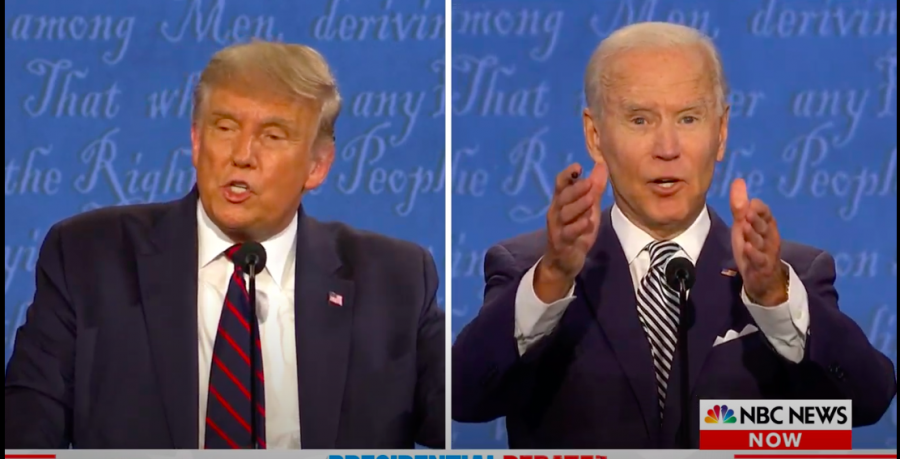

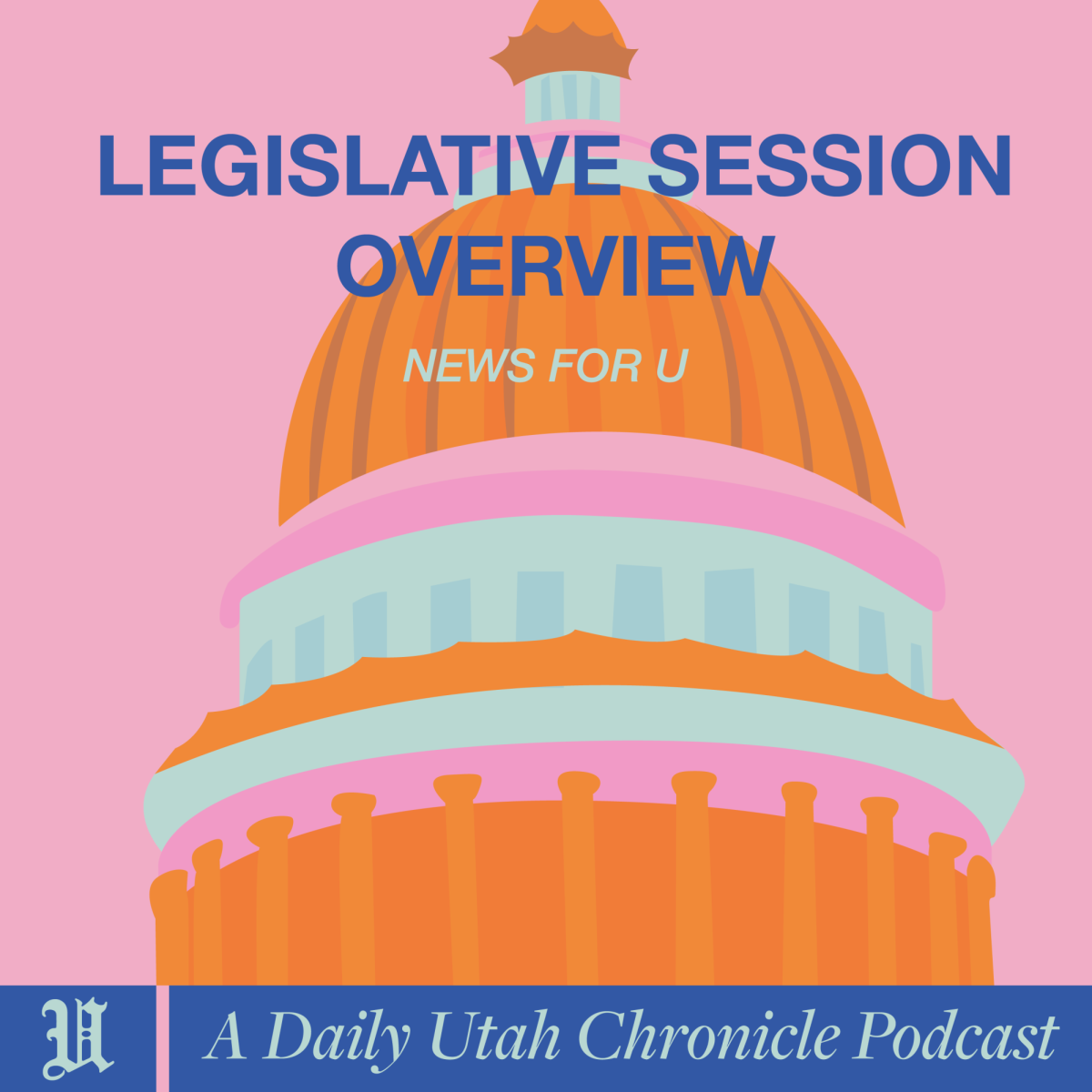
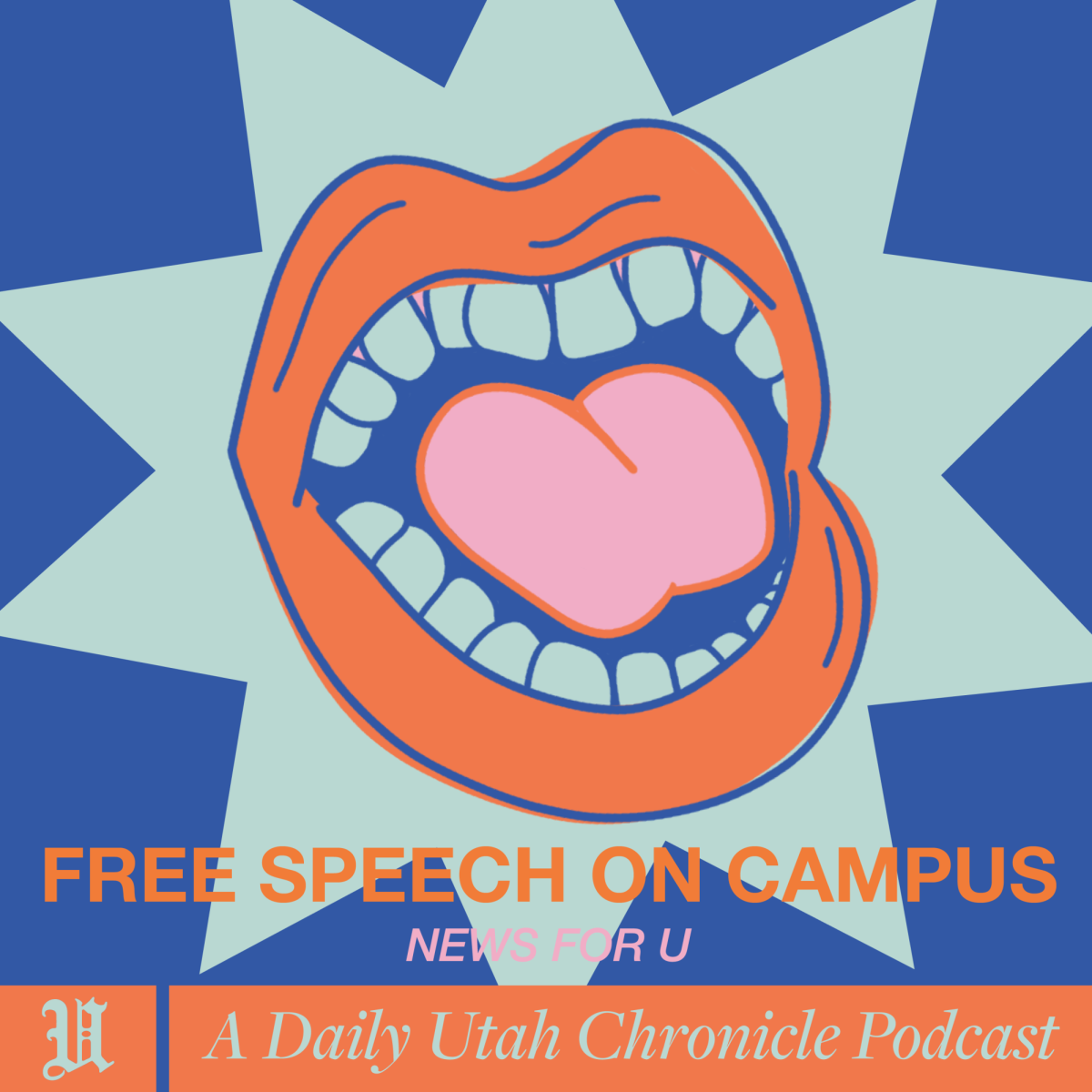
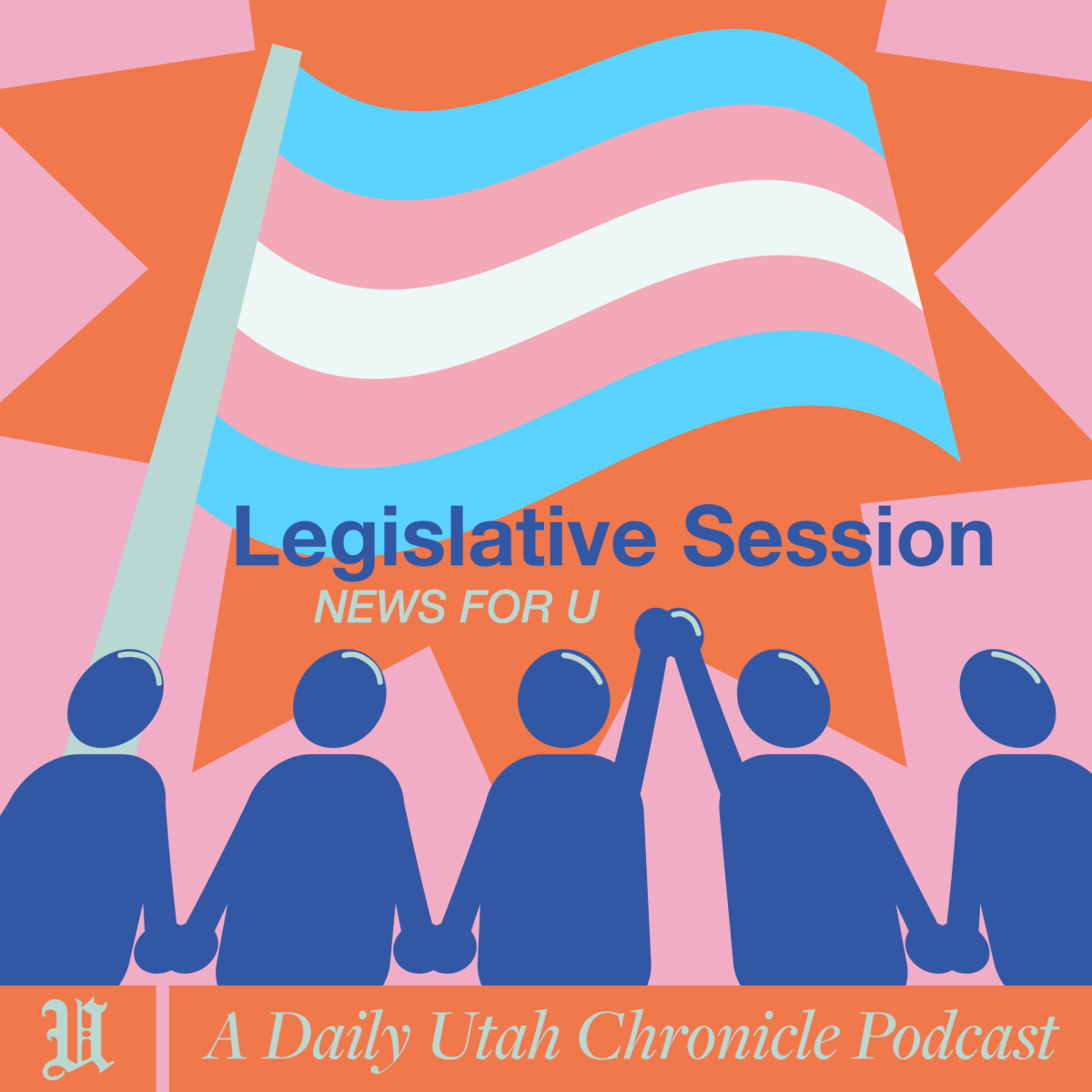
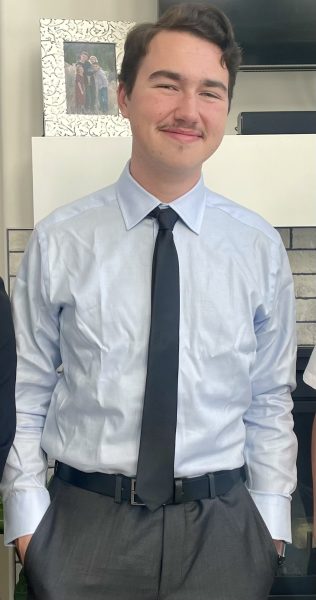


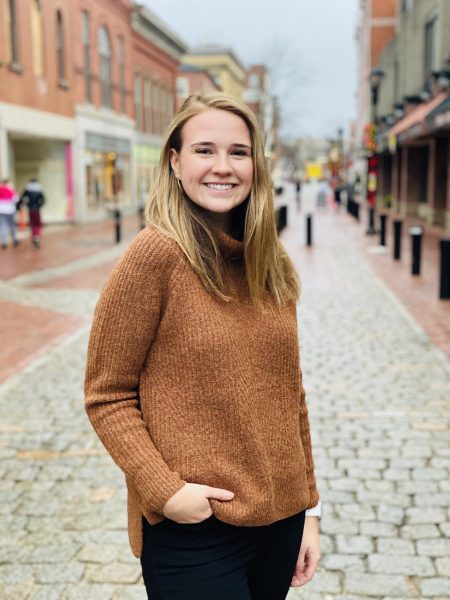

John Hedberg • Feb 16, 2024 at 4:13 pm
Again, while Equity’s neo-Marxist ‘useful idiots’ preach about diversity and inclusion, they only mean inclusion of diversity which agrees with their prejudices and feelings, and to heck with everyone else, no matter how they look or identify. That’s racism, misogyny/misandry, homo/hetero-phobia, religious bigotry, ethnic stereotyping, and transphobia all rolled together, because if any diverse person from any group has an opinion or experience that doesn’t agree with the hatreds or prejudices of the Equity Red Guard, those transgender people are dehumanized, those LGBTQ+ folks are dismissed and excluded, those BIPOC & intersectional persons are demeaned and defamed falsely as haters, and so all individuals no matter how they look or identify are called bigots just for being themselves, for having their own lived experience and their own opinions based on that experience, and for having compassion for any whom the Prophets of Equity don’t have compassion for (the name Chloe Cole immediately comes to mind as someone whom they suppressed and dehumanized, but there are plenty of others).
I’m BIPOC and intersectional, but I’m on the light side in my family (maybe you can relate), and I’ve also been ugly & poor most of my life, a combination I don’t recommend, even among people who share your identity, because you’ll get bullies and bigots even from your own “community”, and they tend to come for you in groups when you’re alone, being hateful cowards and insecure despite their supposed Equity convictions.
When I moved on campus, the discrimination and harassment started right away. I had hateful language launched my way several times at dining hall (Peterson) by students (including POC), where twice other students anonymously called campus police on me just for quietly eating my dinner (the cops refused to reveal the harassers). Two school employees harassed me for months while I tried to get them to see me as human by talking and joking around with them (to no avail). A Chartwells employee finally started charging me a different price than everyone else, and when I told HRE about it, without looking at any evidence besides how I look, Student Affairs pronounced me the “oppressor”, barred me from dining hall for the semester, and put a block on my next-semester registration if I didn’t comply with their punishment protocol, punishment for being the target of discrimination and naively trusting that Campus Equity would give a sh**. They actually came in on the side of the harassers!
Incidentally, I was also assaulted twice at Peterson, and when I reported both to the head of HRE Social Justice, who was a darker skin tone than me, she actually said, “I think it’s good when this happens to someone like you; now you know how it feels”. FYI, I’ve been beaten up and harassed for being poor and funny looking since elementary school. My Mom’s an addict, and we (my sibs) did not grow up in a genteel neighborhood or in a genteel way, so my wardrobe has always been ‘Goodwill special’, and I got used to having only 1 haircut per year. I got cornered into fights all the time; people of all colors and identities looked down on me, maybe for being alone and independent and dressing like Oliver Twist. I made an inviting target for bullies, and Campus Equity evidently feels just fine with that~!
So, I feel for the other folks on campus of all flavors who’ve had bad language thrown at them, and who get scary encounters with campus police, with bigoted professors willing to down-grade your papers for their own hatreds, or from other campus Equity hypocrites, when you’re being nothing but friendly, doing your best, and minding your own business. It comes from diverse students just as much as from the Equity priesthood working for the U, many who say they know better than to be bigots while they take out their virtue signaling or base insecurities on me, because they decide they don’t like the things they assume, or how they feel when they look at me (their worst feelings & prejudiced assumptions are always, always your responsibility somehow, never their own as equal grown adults, despite all their DEI propagandizing).
For me, there are no safe spaces on campus, the negative comments come from people who should know better but who sometimes figure it’s “their turn”, and so people who look poor or scary to Equity bigots end up leaving school, committing suicide, or worse. Consider this: maybe the Equity racists decide you’re an oppressor for being a lighter skin tone than the person you’re dating, so they decide not to defend you when you report threats of violence from the “oppressed” friend you had no trouble spending most of your free time with, and you end up being killed because nobody wanted to be there to defend the life someone who looked like you: it would look like institutional racism! (Shout out to Lauren McCluskey~).
We’re all fine, or we should be, by being and becoming exactly who we were created to be in this life. EQUALITY places everyone at equally high value. Equity is a hate-cult who owes us all an apology for the endless empty fear, division, and baseless ugly prejudice they rain on the rest of us daily with their relentless virtue-signaling and all the needless hypocrisy and suffering they cause by their preferred discrimination and hatreds, and for never giving their “permission” for everyone to simply Love each person for who we are: individual human beings with value & worth, all equal children in the eyes of God (By Whatever Name), equally fallible & forgivable, equally lovable and full of promise, with good purposes, good principles, good humor, and good heart. Accept everyone for the content of their character, for who we are as diverse & unique individuals, which is easy to do when your identity is Human and your cultural language is Love, no matter how others may identify you. Kindly, 😊